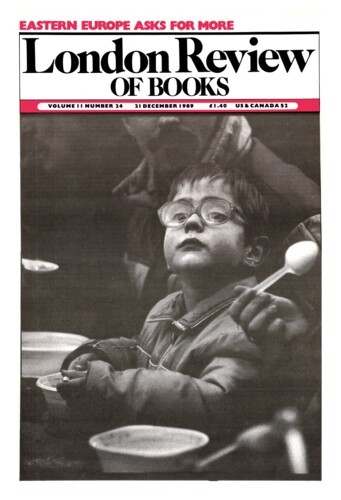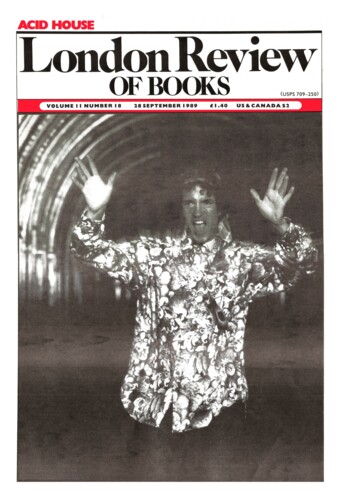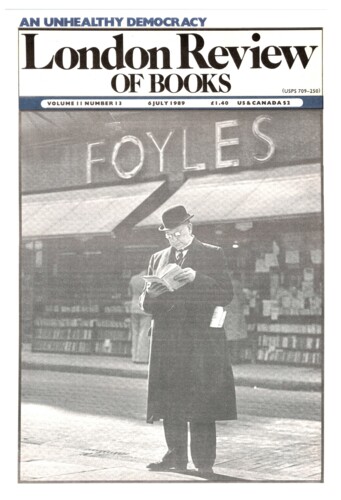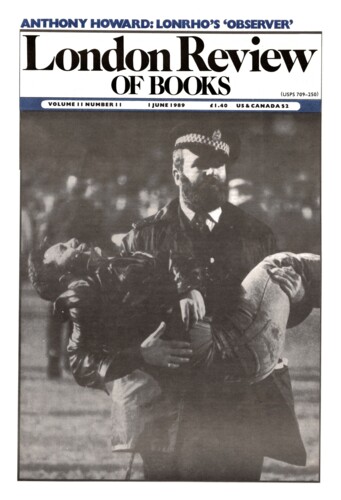Womanism
Dinah Birch, 21 December 1989
American black people describe their wildest girls as ‘womanish’. Alice Walker recalls that traditional usage in defining her own work: she is interested in ‘womanist’ rather than ‘feminist’ writing. ‘Womanist’ texts proclaim a double rebellion, fusing the long-suppressed anger of women with that of blacks. Alice Walker’s most forceful books to date (the novel The Color Purple, published in 1982, followed by a collection of essays, In Search of our Mothers’ Gardens: Womanist Prose, in 1983) locates the identity of black women in the troubled perspectives of the past. In this she shares in a wider movement. The growing body of black literature in America asserts a need to make good what has come to seem one of the most damaging depredations imposed by slavery and exploitation: the loss of a known place in history.





